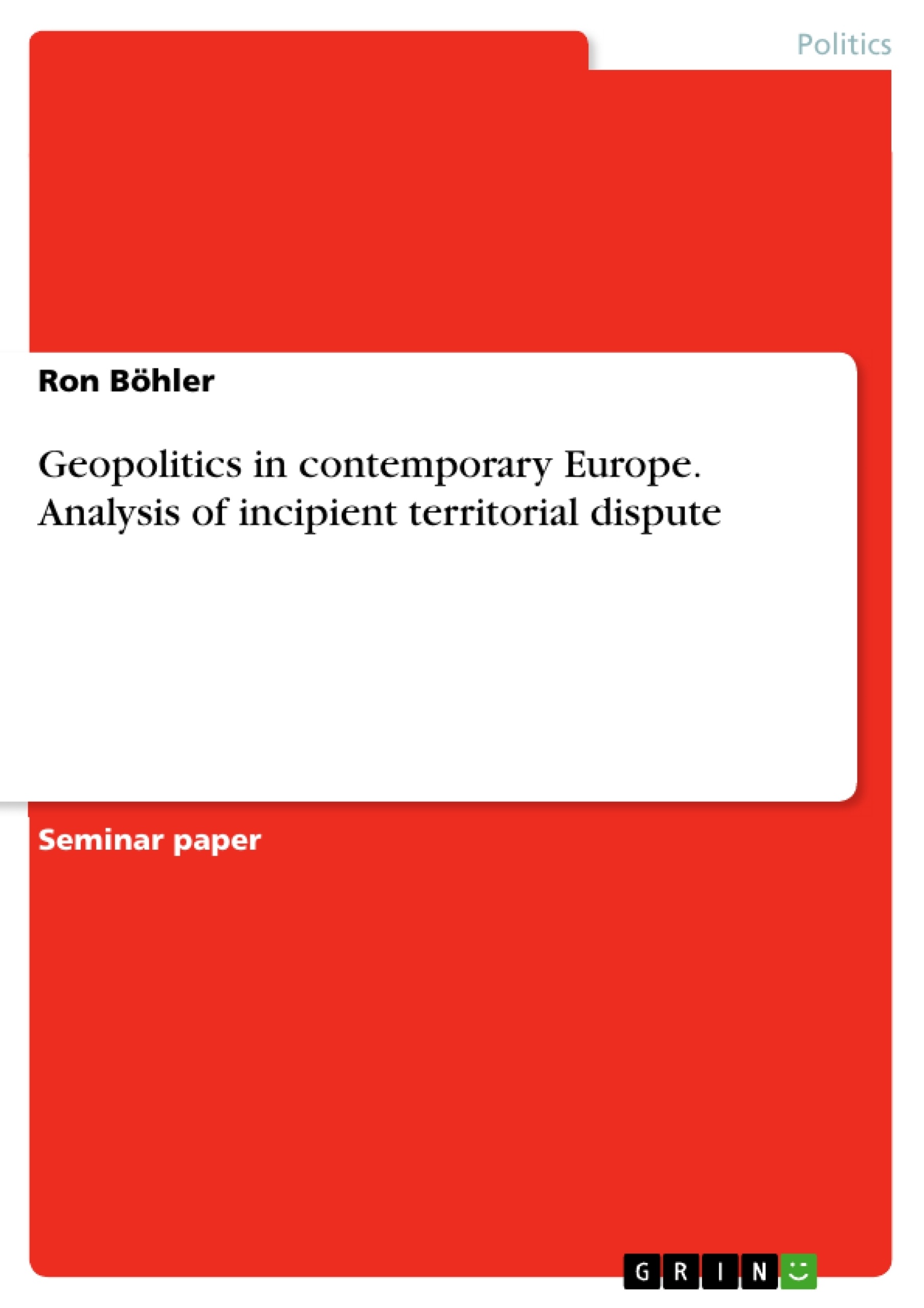This essay tries to outline incipient geopolitical conflicts in and beyond contemporary Europe, which might change its security perceptions, strategies and aspirations permanently. The attention of this essay is focused on two territorial challenges beyond European borders with direct effect upon its security. The first one deals with the Arctic Zone and the geopolitical disputes between its neighbouring states. The second one concerns the deepening securitization of outer space and its impact on the European sphere.
Contemporary Europe faces new emerging territorial challenges, which are not located inside Europe but in its geographical periphery and beyond. Various territorial conflicts, in particular those between successor states of the former Soviet Union (SU) or former Yugoslavia, were present throughout the 1990s and sometimes even resolved only recently, such as the border dispute between Slovenia and Croatia in summer 2010. Nevertheless, these are not the only territorial conflicts affecting the European security structure.
Territory is an important security issue encased in geostrategic politics in Europe as well as in world affairs and has been broadly examined and assessed by scholars. In modern geopolitical analyses the emphasis is not ‘classical understanding of spatial borders and territory of a nation-state, but more about transcending these borders. The driving force of this school of thought is to understand why and how states in world politics aim to secure territory beyond their own borders. This recent development matters to Europe as much as it does to the US, Russia and other nations in international relations. And by far, this is an issue related to individual, regional and collective security identity.
Inhaltsverzeichnis (Table of Contents)
- INTRODUCTION
- THEORETICAL ASSUMPTIONS ABOUT GEOPOLITICS
- "TERRESTRIAL" CHALLENGES: THE ARCTIC REGION AS A SAFETY HAZARD
Zielsetzung und Themenschwerpunkte (Objectives and Key Themes)
This research paper examines the emerging territorial challenges that are impacting contemporary European security. It argues that these challenges, located outside of Europe's geographical boundaries, pose a significant threat to European security perceptions, strategies, and aspirations.
- The role of territory in modern geopolitics
- The impact of territorial conflicts on European security
- The Arctic region as a geopolitical challenge
- The securitization of outer space
- The implications of "vague territory" for European security
Zusammenfassung der Kapitel (Chapter Summaries)
INTRODUCTION
The paper introduces the concept of "vague territory" and its significance for European security. It argues that contemporary territorial challenges, particularly in the Arctic and outer space, have the potential to reshape European security perceptions and strategies.
THEORETICAL ASSUMPTIONS ABOUT GEOPOLITICS
This chapter explores the theoretical framework of geopolitics, focusing on its relevance in a post-Cold War world. It examines the concept of security in relation to territorial boundaries and argues that the traditional Westphalian order is becoming increasingly irrelevant in a globalized world.
"TERRESTRIAL" CHALLENGES: THE ARCTIC REGION AS A SAFETY HAZARD
This section delves into the geopolitical challenges posed by the Arctic region. It highlights the competition between "polar states" for resources and influence in the region and discusses the potential for conflict.
Schlüsselwörter (Keywords)
The paper focuses on the concepts of territory, geopolitics, security, European security, Arctic, outer space, "vague territory," and the implications of these concepts for international relations and security studies.
Frequently Asked Questions
What are the emerging territorial challenges for Europe?
Contemporary Europe faces conflicts beyond its geographical borders that affect its security, specifically in the Arctic Zone and the increasing securitization of outer space.
Why is the Arctic region a geopolitical safety hazard?
The melting of polar ice opens new shipping routes and access to resources, leading to disputes between neighboring states (like Russia, US, and EU members) over territorial claims and influence.
What is meant by the "securitization of outer space"?
It refers to the strategic and military importance of space for communication, surveillance, and defense, which has become a new arena for global power competition affecting European security.
How has the understanding of geopolitics changed since the Cold War?
Modern geopolitics transcends classical nation-state borders. It focuses on "vague territories" and how states aim to secure interests in regions far beyond their own geographical boundaries.
What role do former Soviet and Yugoslav territories play in European security?
Conflicts in these regions throughout the 1990s shaped the current European security structure, highlighting the ongoing importance of territorial stability for regional peace.
- Citar trabajo
- Ron Böhler (Autor), 2011, Geopolitics in contemporary Europe. Analysis of incipient territorial dispute, Múnich, GRIN Verlag, https://www.grin.com/document/376558



